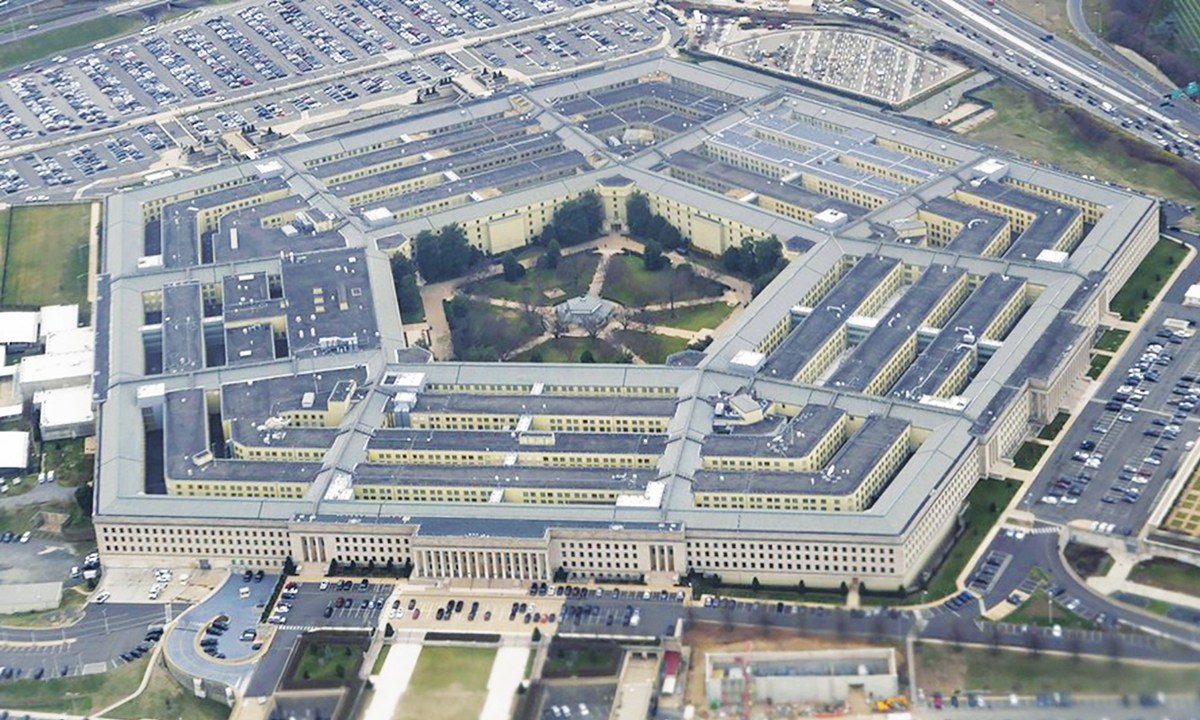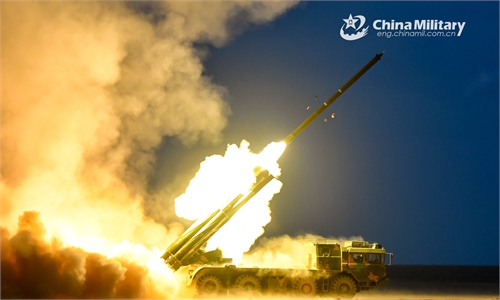
The Pentagon seen from an airplane over Washington DC. Photo: Xinhua
The US military is reportedly planning to deploy new land-based intermediate-range missiles in the Asia-Pacific region to "defend" the island of Taiwan, a move that "has limited tactical impact" at present but fully demonstrates the US' determination to interfere in the Taiwan question, observers said on Monday.
The US is to send medium-range missiles including the Standard Missile 6 (SM-6) and Tomahawk to the Asia-Pacific, US military news website Defense One reported, citing remarks by US Army General Charles Flynn made during the annual Halifax International Security Forum on Saturday.
Flynn said the US has tested these missiles and plans to deploy them in 2024. He did not disclose the specific timing or location of the deployment, only saying "we will deploy them."
The US was previously prevented from deploying nuclear and conventional ground-launched ballistic missiles, cruise missiles and missile launchers with ranges of 500 to 5,500 kilometers under the terms of the Intermediate-Range Nuclear Forces Treaty signed in 1987.
Former US president Donald Trump announced the US' withdrawal from the treaty in 2019, and the US has been attempting to deploy more missiles in the Asia-Pacific to facilitate its Indo-Pacific Strategy and rivalry with China, analysts said.
But a deployment of this nature faces opposition from the government and the people of countries where the US could deploy the missiles, Song Zhongping, a Chinese military expert and TV commentator, told the Global Times on Monday.
Song said the SM-6 and Tomahawk, which will reportedly be deployed, are not ballistic missiles and easier to intercept, and therefore do not constitute a major threat in a military and tactical sense.
However, the move is a big provocation politically, as it means the US has completely abandoned the treaty and is deploying missiles at China's doorstep, Song said.
Analysts warned of the danger of such a provocation and possible escalation of confrontation, citing a precedent in 1962 - the Cuban Missile Crisis. The missile the US plans to deploy in the Asia-Pacific is not as powerful as those in Cuba, but despite the difference in the severity of provocations, the two matters are similar in nature, analysts said.
The US' missile deployment in the Asia-Pacific is an integral part of its Indo-Pacific Strategy and military arrangement related to the Taiwan question, Song said. He elaborated that the US is engaging as many allies as possible to coordinate on this end, while also stepping up deployment surrounding China, including the Tomahawk and even potential intermediate-range ballistic missiles.
Given the risk of a China-US military conflict over the Taiwan question, the US is eyeing ballistic missiles to contain China's possible operations.
Song explained that the US currently possesses mainly sea-based and air-based intermediate-range ballistic missiles. If the deployment of land-based intermediate-range ballistic missiles can be strengthened, US troops will have an additional means of attack in any possible military conflict with the People's Liberation Army.
The deployment suggested that the US is preparing for the worst-case scenario - a military conflict between China and the US. "It is determined to intervene in order to achieve its strategic goals."
China has repeatedly said on different occasions that the Taiwan question is the first red line that must not be crossed in China-US relations. The US should not underestimate this stance or stir up troubles on this sensitive topic, Chinese observers noted.


